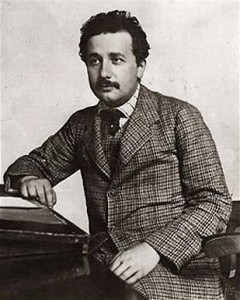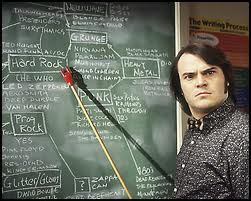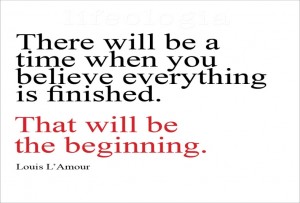It always seems self-contradictory to proffer sage career advice to fellow teachers and academics. I am not too far removed from the realm of the Brittain Fellows, having been one from 2007-2008. Like you, I walked among the hallowed halls of Skiles and watched the ever-fluctuating stream of students, many convinced they were born to be engineers, etc. I offered them reflection, insight into diverse and possibly subversive concepts and the ability to think beyond the rote empirical frame. Yet, even as I was teaching them I was bringing forth aspects of myself, in that arcane maieutic way. My inner turning slowly led me to new realizations and questioning of my long term goals.
It is never easy to decide on a transition. I think too many times academicians train and study so long they forget the career viability of their enterprise. Suddenly, they wake up one day and must become expert self-promoters overnight. I remember thinking about the abysmal tenure-track placement rates for a PhD in the English/Humanities, and I contemplated the wisdom of pursuing other career tracks, those less Sisyphean in nature. I think a mix of healthy idealism and absolute determination are healthy prerequisites for academia. It is important not to become too cynical, nor to live with unreasonable expectations. I want to encourage those entering the profession, placate those considering alternatives, and even offer some generalized sage advice and pointers for reflection.
1. Always consider alternative venues for your talents:
For all their smarts, intellectuals tend to have tunnel-vision in practical matters. Perhaps their minds are so busy thinking in the abstract they forget how to be flexible in the concrete practical world. There is no law saying you have to pursue a tenure track position when you graduate with your PhD, and the stats suggest alternative career thinking is a necessity. Many enjoy teaching and publishing, but some of the best thinking occurs outside of the career context. Hint, hint: Einstein the patent clerk.
There are some great books about alternative career paths, such as So What are You Going to do with That?: Finding Careers Outside Academia and Outside the Ivory Tower: A Guide for Academics Considering Alternative Careers. There are even many decent websites such as Versatile PhD.
I think one of the greatest skills academics have is the ability to re-conceive the world, and this should apply to their lives as well. In no way do I encourage folks to leave academia, but use your creativity and intellectual acumen to chart a path for your life that suits your interests and needs. If a traditional professor role is the desired choice, then by all means pursue it. It is important to remember life is a project, as Sartre said (via Ortega y Gasset), and so often we limit our potentiality: you are such-and-such because you went to such-and-such. We start as humans first – the rest are labels and ego identifiers, and yes, career titles to advance in the world of regimented physical and intellectual labor.
2. Know thyself:
I studied existential literature and philosophy for quite a while, and there are perks and detriments when adhering to this maxim. Many millennia after its Socratic origin, such a comprehensive platitude implores every thinker to conceive his/her life’s project within the frame of mortality.
The hard part about living this maxim is the mercurial nature of self-revelation. All too often our most profound moments occur not in an “aha” moment but in a banal context: singing in the shower; standing in line in a food establishment; driving on a dark night – the peripheral has a way of sneaking in. You might look out at the expectant faces of your class one day and realize you feel idiotic…a paradox as a teacher.
I must say, personally, I function just fine either teaching or not…I am quite good at it (at least in evaluations) but it is not crucial to my sense of well-being. Never forget to ask yourself what you are actually doing: there is no need to romanticize an occupation. If it is tolerable and at times satisfying, then it is okay. If you secretly dread showing up, then by all means make a change. To some teaching is boring, to others it is highly fulfilling and at times cathartic.
3. See the process as a long haul:
If you decide to pursue other career options, take comfort in knowing a career is a long-haul of complicated choices. There is no reason to slave away as an adjunct or lecturer for years unless you absolutely love it. Life is diverse and this is one of the beneficial traits of an academic – learn to see your life ambitions in a variety of career tracks.
Personally, I knew I had to make some tough choices heading to the academic librarian world. Acquire yet another degree and pay dues in an industry that values longevity – I worked for three years at a position that really didn’t even require a bachelor’s degree, but it was a foot in the door of an academic library in a respectable position. Sacrifices are the name of the game on a career track.
Reflecting back on my motivations for choosing librarianship, I have to say the main factors are my inherent desire for freedom and previous work experiences. I had quite an extensive background in the library field, starting as a student worker in the mega-libraries of UT Austin. I learned that while I love to write and learn new information, I didn’t enjoy the pressure to pigeonhole my thinking into a set academic area and submit to the onus of academic specialization and eventual thought restriction. The Brittain program made me realize I relish interdisciplinarity and hybridity, but I also wanted to be free to explore these intellectual connections without the overt pressures of the “publish or perish model” or the drudgery of a massive teaching load. The academic library is still very much close to my roots, and as a librarian I am listed as a faculty member on tenure-track. Yet, the title means little to me – what matters is I feel liberated to explore my own thinking and write papers of interest to me, although I have many professional obligations to fulfill and typical bureaucratic busywork. Still, there is an amicable personal balance I did not feel when I was pursuing the traditional PhD career track, although the librarian profession is by no means the epitome of self-actualization I initially conceived (as no profession can be). I am a person constantly becoming, as Kierkegaard would say, and my career is only one facet of my sense of self.
Consequently, my reasoning for my transition to libraries is explicit but also ineffable, related to personal goals but also a more inexplicable sense of personal harmony, of self and world, thought and action, career self versus greater self, recognition of the parodic seriousness of careerism versus the inherent rebelliousness of my personal self to define its identity outside mainstream thought and even the supposedly more liberating matrix of the professoriate. I guess you could say I wanted to reclaim my vestigial sense of freedom, like a quantum spark to arc back into the cosmos and say, “This is me but also this…etc.” And I think this is a reconnection to that mysterious ground of Being called Dasein that Heidegger so aptly named. Indeed, the actual reasons for my career shift are quite complex, but I think this is the fun part of self-exploration and the eventual implementation of your sense of self and talents into some type of societal role – you just weigh the pros and cons of each profession and determine at the end of the day whether it was worth it, according to your self’s own arcane evaluation, balanced between subjective and objective desires, desire to surrender to being and the constant pull of becoming, transcending sterile life roles and self-definitions.
4. Consider employment at all kinds of schools:
This is the point where I tell you to suck in your pride and consider all types of the educational field. Lest I turn this into a Chronicle of Higher Education piece, I will keep this short and just say community colleges, trade schools, and private schools fulfill key roles in our educational system. I also know one individual that has opted for teaching at a private school, albeit he already had teacher certification before entering his PhD program. At the least, it afforded him a position at a better K-12 school and with a higher salary.
5. Be in it because you love it:
I can exist whether I teach or not… I do enjoy teaching and even like the interplay of new technologies on pedagogy, but I think a real academic must love it to a fault. I truly see the best teacher as someone that acts as a bridge to further knowledge, and this does not imply self-proclamation but even abnegation. I will submit articles and attribute thoughts, but my goal is not just to get a publication credit but to spark some new discourse or insight and even recede into the distance so a new voice or student can assume the stage and progress the knowledge arena.
I thought, like anyone, all my years of study could lead to only one type of position in academia, but instead I am in a tenure-track position as an academic librarian and doing well. I have no doubt everyone in the Brittain program is multi-talented. Take this time to really explore your affinity for the profession. Do you continue out of habituation or true desire? Do you envision yourself in a career with higher income? These are valid questions, and the more frequently you ask them during your early academic career the more easily will you be able to commit yourself to a career in either academia or some other profession desperately needing your talents.
6. Academia is not the only place of intellectuals:
Indeed, thinking people exist in all walks of life and professions. I know this comes as a shock – lol! Obviously, all of us know this, but sometimes the cloistered world of academia projects itself as the only option for someone that likes to think and read. There are now innumerable career guides for academics on Amazon and through other vendors and bookstores – please read some of this literature and see the vast gamut of viable options. Perhaps we have been wrong in hogging the intellectuals for the universities – release them into the wide world and let them grow stronger in adversity!
Of course, this may sound hypocritical because I currently work in academia, but it is true knowledge is for everyone, although somehow universities and colleges have decided to charge more for knowledge dissemination in the last decade. Having now worked in the library for several years and openly embraced the online knowledge revolution, take care, my fellow postdocs, and know the democratization of knowledge has only yet begun. It may not take the form of MOOCs or solely online programs, but it will provide a means for those that want to know to study the great thoughts of the ages.

In closing, I want to encourage all of you to be thankful for your opportunities and embrace courage and creativity in how you approach your career ambitions. There are many ways to live in this wondrous life, and as Sartre always said, “Choose”… and of course therein lies the dizzying freedom, but the choice must be yours… not based on academic pressures or conformity but the individualized mind, staking out a claim in the maddening cacophony of voices and jostling lives… here I am, ready to make the myths…





Uplifting piece. Thanks, Chad.